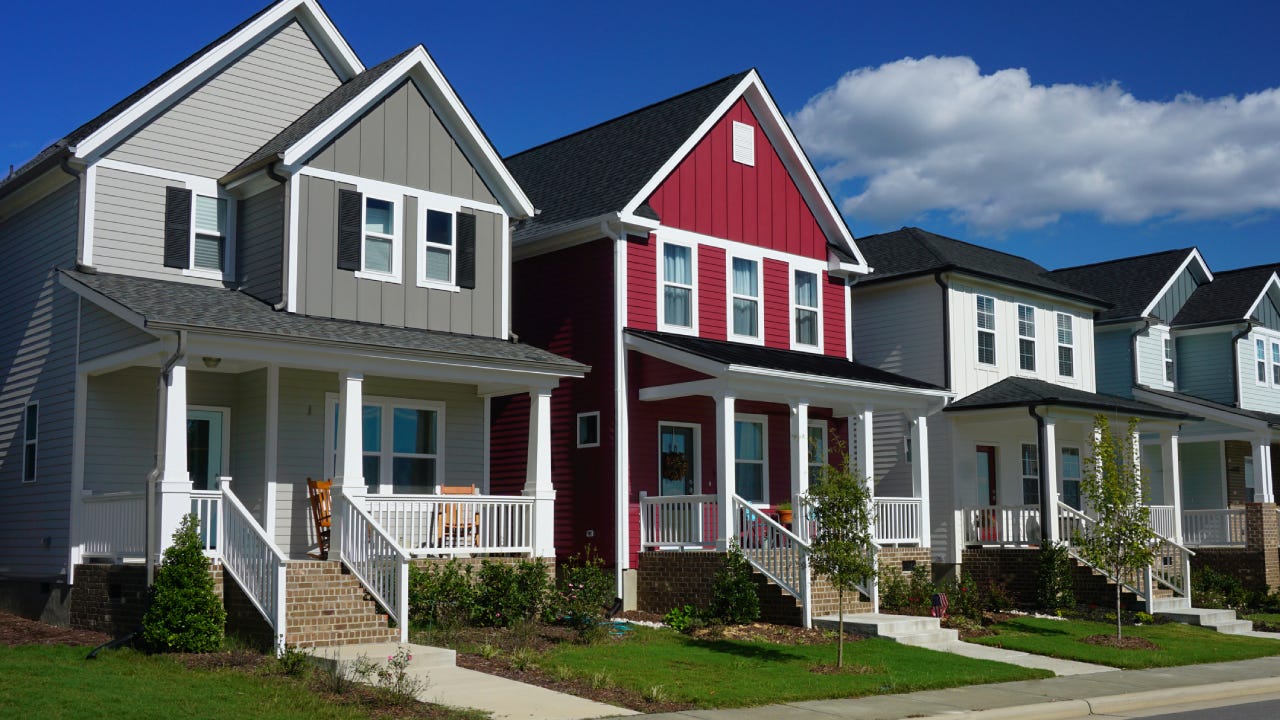How Real Estate Lockhart Can Help You Build Wealth in Real Estate
How Real Estate Lockhart Can Help You Build Wealth in Real Estate
Blog Article
The Future of Real Estate: Fads and Opportunities to View
As the realty landscape develops, it becomes increasingly vital to recognize the arising trends and chances that will specify the market in the coming years. Technical improvements are improving transactional processes, while an expanding concentrate on sustainability reflects changing customer priorities. Additionally, group changes and the surge of remote job are affecting housing choices, especially in suburban areas. With these dynamics at play, a more detailed assessment of the adjustments and strategies needed for success exposes appealing opportunities that can reshape financial investment methods and market habits.
Technological Technologies in Realty
In recent years, the real estate market has actually embraced a wave of technical technologies that are transforming traditional methods. One of the most noteworthy innovations is the surge of large information analytics, which enables genuine estate professionals to assess market fads, anticipate home worths, and determine investment possibilities with unmatched precision.
Additionally, online truth (VIRTUAL REALITY) and boosted reality (AR) innovations are revolutionizing residential property marketing by supplying immersive experiences for potential buyers and lessees. These devices allow customers to conduct digital tours of residential or commercial properties, therefore improving the search process and enhancing consumer interaction. Blockchain technology is acquiring traction as a way to protect deals and preserve transparent documents, therefore lessening fraud and accelerating the closing procedure.
Smart home innovations are additionally ending up being progressively prevalent, enabling house owners to keep an eye on and control their buildings from another location (Real Estate Lockhart). Collectively, these technological innovations are reshaping the landscape of property, promoting a much more efficient, clear, and customer-centric industry
Demand for Lasting Qualities
As customers increasingly focus on ecological responsibility, the demand for sustainable residential or commercial properties has actually risen in the real estate market. This change mirrors a wider social trend towards sustainability, with capitalists and property buyers looking for residential properties that lessen ecological impact while taking full advantage of power effectiveness. Features such as photovoltaic panels, energy-efficient appliances, and sustainable building products are currently considered as vital rather than optional.

In addition, the surge of environmentally friendly areas, which prioritize walkability and access to public transport, better emphasizes this pattern. These advancements attract eco mindful buyers and promote a much healthier lifestyle.
As the demand for lasting homes continues to rise, market stakeholders must adapt to these expectations. By welcoming ingenious methods and focusing on sustainability, the real estate sector can not just satisfy customer need but additionally add to a much more lasting future.
Changing Customer Demographics

In addition, the maturing populace is i was reading this improving need for housing. Child boomers are seeking downsized residences that provide ease of access and reduced maintenance, typically preferring metropolitan settings with nearby facilities. This change demands a concentrate on multi-generational housing options that accommodate differing needs.
Additionally, cultural variety is playing a critical role in actual estate trends. As these group shifts continue to develop, real estate experts need to adjust their techniques to deal with the needs of these varied buyers (Real Estate Lockhart).
Increase of Remote Work Impact
Progressively, the rise of remote job is transforming the property landscape, motivating considerable changes in customer preferences and location choices. As employees appreciate the versatility of browse around this web-site functioning from home, many are reviewing their domestic demands, causing a surge in need for buildings in country and suv areas. This pattern is mostly driven by the wish for even more roomy living settings that can fit office and a better quality of life.
Moreover, metropolitan facilities, when the centerpiece for purchasers, are witnessing a gradual decrease in need as individuals focus on price and accessibility to nature. As a result, realty designers and financiers are changing their focus towards residential or commercial properties that provide office spaces, exterior services, and distance to crucial solutions.
Actual estate experts should adjust to the changing preferences of purchasers, highlighting the importance of way of life elements in their marketing methods. The implications of remote job on real estate are profound, shaping future patterns and opportunities.
Investment Opportunities in Emerging Markets
Investment chances in arising markets are constantly attracting interest from genuine estate financiers looking for diversity and growth potential. These markets, defined by rapid financial development, boosting urbanization, and a growing center course, present unique potential customers for smart financiers. Nations in Southeast Asia, Africa, and Latin America are experiencing significant framework renovations and favorable government policies, which better boost their appeal.
Realty markets such as domestic, industrial, and logistics are experiencing enhanced demand as a result of metropolitan migration and developing consumer choices. Especially, cities like Ho Chi Minh City, Nairobi, and Medellín are becoming hotspots for investment as a result of their increasing economies and youthful demographics.
Capitalists must conduct extensive market evaluations to determine crucial fads, such as changes in populace characteristics and economic security, which can affect property values. In addition, partnerships with neighborhood real estate firms can promote successful entrance and navigation in these markets.
However, it's critical to be conscious of potential threats, consisting of political instability and regulatory obstacles. By considering these aspects and adopting a long-lasting viewpoint, capitalists can properly profit from the profitable opportunities emerging in these establishing regions.

Verdict
In conclusion, the future of genuine estate will certainly be substantially affected by technical developments, an expanding emphasis on sustainability, and developing buyer demographics. Navigating this transforming landscape will need strategic collaborations and an eager understanding of market characteristics to capitalize on the fads shaping the sector.
As the actual estate landscape advances, it comes to be significantly essential to comprehend the arising fads and chances that will define the sector in the coming years. One of the most noteworthy technologies is the rise of big data analytics, which permits real estate specialists to assess market patterns, anticipate residential or commercial property values, and identify investment opportunities with unprecedented accuracy.As consumers significantly prioritize environmental duty, the need for sustainable properties has actually risen in the genuine estate market. The implications of remote job on real estate are extensive, shaping future patterns and opportunities.
Financial investment opportunities in emerging markets are constantly bring in focus from real estate investors looking for diversity and growth possibility.
Report this page